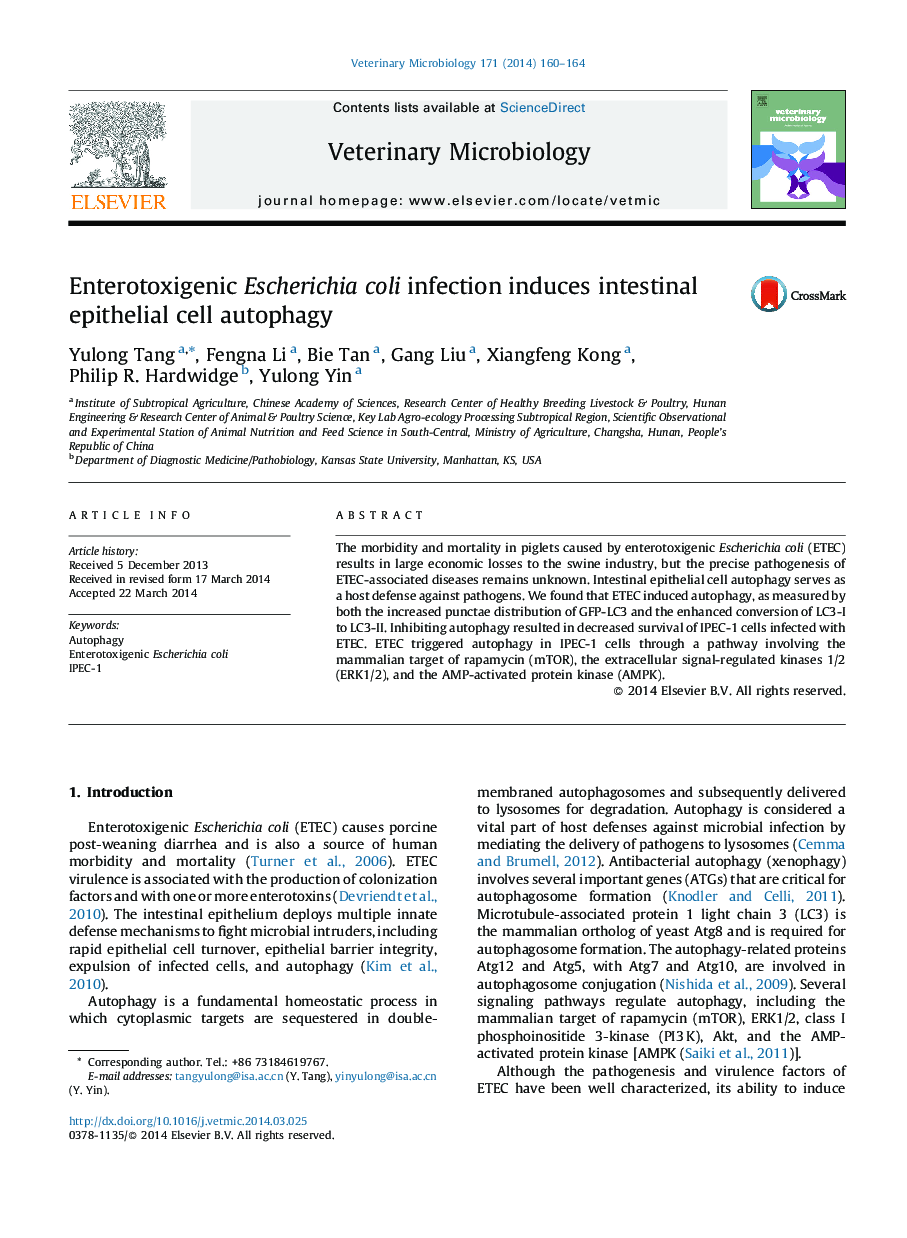| Article ID | Journal | Published Year | Pages | File Type |
|---|---|---|---|---|
| 2466596 | Veterinary Microbiology | 2014 | 5 Pages |
The morbidity and mortality in piglets caused by enterotoxigenic Escherichia coli (ETEC) results in large economic losses to the swine industry, but the precise pathogenesis of ETEC-associated diseases remains unknown. Intestinal epithelial cell autophagy serves as a host defense against pathogens. We found that ETEC induced autophagy, as measured by both the increased punctae distribution of GFP-LC3 and the enhanced conversion of LC3-I to LC3-II. Inhibiting autophagy resulted in decreased survival of IPEC-1 cells infected with ETEC. ETEC triggered autophagy in IPEC-1 cells through a pathway involving the mammalian target of rapamycin (mTOR), the extracellular signal-regulated kinases 1/2 (ERK1/2), and the AMP-activated protein kinase (AMPK).
